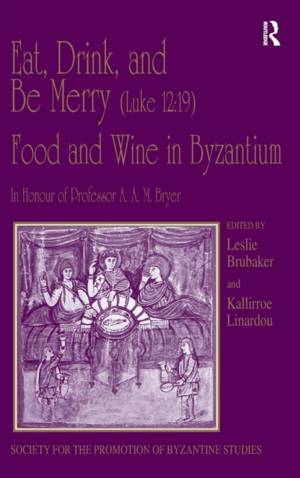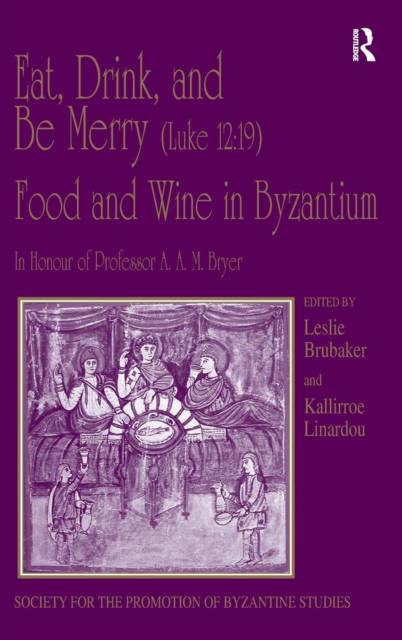
- Retrait gratuit dans votre magasin Club
- 7.000.000 titres dans notre catalogue
- Payer en toute sécurité
- Toujours un magasin près de chez vous
- Retrait gratuit dans votre magasin Club
- 7.000.000 titres dans notre catalogue
- Payer en toute sécurité
- Toujours un magasin près de chez vous
Eat, Drink, and Be Merry (Luke 12
19) - Food and Wine in Byzantium: Papers of the 37th Annual Spring Symposium of Byzantine Studies, In Honour of Professor A.A.M. Bryer
290,45 €
+ 580 points
Description
This volume brings together a group of scholars to consider the rituals of eating together in the Byzantine world, the material culture of Byzantine food and wine consumption, and the transport and exchange of agricultural products. The contributors present food in nearly every conceivable guise, ranging from its rhetorical uses - food as a metaphor for redemption; food as politics; eating as a vice, abstinence as a virtue - to more practical applications such as the preparation of food, processing it, preserving it, and selling it abroad. We learn how the Byzantines viewed their diet, and how others - including, surprisingly, the Chinese - viewed it. Some consider the protocols of eating in a monastery, of dining in the palace, or of roughing it on a picnic or military campaign; others examine what serving dishes and utensils were in use in the dining room and how this changed over time. Throughout, the terminology of eating - and especially some of the more problematic terms - is explored. The chapters expand on papers presented at the 37th Annual Spring Symposium of Byzantine Studies, held at the University of Birmingham under the auspices of the Society for the Promotion of Byzantine Studies, in honour of Professor A.A.M. Bryer, a fitting tribute for the man who first told the world about Byzantine agricultural implements.
Spécifications
Parties prenantes
- Editeur:
Contenu
- Nombre de pages :
- 308
- Langue:
- Anglais
- Collection :
Caractéristiques
- EAN:
- 9780754661191
- Date de parution :
- 28-12-07
- Format:
- Livre relié
- Format numérique:
- Genaaid
- Dimensions :
- 156 mm x 234 mm
- Poids :
- 612 g






